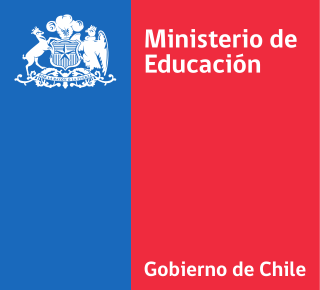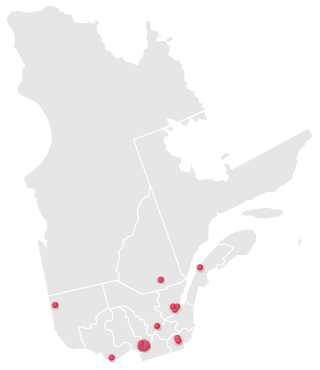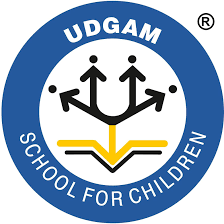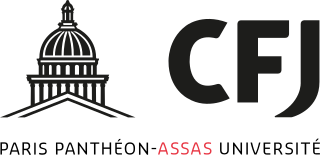
Admission to the bar in the United States is the granting of permission by a particular court system to a lawyer to practice law in the jurisdiction. Each U.S. state and jurisdiction has its own court system and sets its own rules and standards for bar admission. In most cases, a person is admitted or called to the bar of the highest court in the jurisdiction and is thereby authorized to practice law in the jurisdiction. Federal courts, although often overlapping in admission standards with states, set their own requirements.

A grande école is a specialized top-level educational institution in France and some other previous French colonies such as Morocco and Tunisia. Grandes écoles are part of an alternative educational system that operates alongside the mainstream French public university system, and take the shape of institutes dedicated to teaching, research and professional training in either pure natural and social sciences, or applied sciences such as engineering, architecture, business administration, or public policy and administration.

Education in Singapore is managed by the Ministry of Education (MOE). It controls the development and administration of state schools receiving taxpayers' funding, but also has an advisory and supervisory role in respect of private schools. For both private and state schools, there are variations in the extent of autonomy in their curriculum, scope of taxpayers' aid and funding, tuition burden on the students, and admission policy.

Legacy preference or legacy admission is a preference given by an institution or organization to certain applicants on the basis of their familial relationship to alumni of that institution. It is most controversial in college admissions, where students so admitted are referred to as legacies or legacy students. The practice is particularly widespread in the college admissions in the United States; almost three-quarters of research universities and nearly all liberal arts colleges grant legacy preferences in admissions.
The following tables compare general and technical information for a number of HTML editors.
Need-blind admission in the United States refers to a college admission policy that does not take into account an applicant's financial status when deciding whether to accept them. This approach typically results in a higher percentage of accepted students who require financial assistance and requires the institution to have a substantial endowment or other funding sources to support the policy. Institutions that participated in an antitrust exemption granted by Congress were required by law to be need-blind until September 30, 2022.
This is a comparison of word processor programs.

Education in Chile is divided in preschool, primary school, secondary school, and technical or higher education (university).The levels of education in Chile are:
Cabell Midland High School is located in Ona, West Virginia. Cabell Midland is a four-year high school which serves grades 9 through 12. The school's name is derived from two sources; "Cabell" for the county in which it is located, and "Midland" for the famous Midland Trail which once extended from Norfolk, Virginia to Los Angeles, California.

Higher education in Quebec differs from the education system of other provinces in Canada. Instead of entering university or college directly from high school, students in Quebec leave secondary school after Grade 11, and enter post-secondary studies at the college level, as a prerequisite to university. Although both public colleges (CEGEPs) and private colleges exist, both are colloquially termed CEGEPs. This level of post-secondary education allows students to choose either a vocational path or a more academic path.

Ascend International School in Bandra East, Mumbai, India, is a coeducational international Pre K to 12th grade day school established in 2011 and managed by the non-profit Kasegaon Education Society. The International Baccalaureate program and problem-based learning, as well as the educational philosophy of the University Child Development School define the school's curriculum.
The California DREAMAct is a package of California state laws that allow children who were brought into the US under the age of 16 without proper visas/immigration documentation who have attended school on a regular basis and otherwise meet in-state tuition and GPA requirements to apply for student financial aid benefits. It and past similarly named legislation have been authored by California State Senator Gil Cedillo.

National University of Study and Research in Law (NUSRL) is a National Law University located in Ranchi, Jharkhand, India. It was established by a legislative act, by the State of Jharkhand as the fourteenth National Law University of India. The statute provides for the Chief Justice of India or a Senior Supreme Court Judge to serve as the Visitor of the university.
A college cost calculator, in the United States, is an online tool allowing students and their parents to calculate how much college is likely to cost. Numbers are input into the online calculator, and if done properly, it gives an estimate of the likely expenses for that student attending that particular college.
The 2011 Rutgers Tuition Protests were a series of primarily student-led public education reform initiatives at Rutgers University in New Brunswick, New Jersey. Faced with rising education costs, diminished state subsidies and the possibility of a non-existent tuition cap, campus groups, mobilized to keep the increase in annual student financial obligation to a minimum through marches, sit-ins, letters to administration officials, and forums.
The Hunter-Bellevue School of Nursing (HBSON) is the nursing school of Hunter College, a public university that is a constituent organization of the City University of New York (CUNY). It is located on the Brookdale Campus, at East 25th Street and 1st Avenue in Kips Bay, near Bellevue Hospital. The school is the flagship nursing program for CUNY.

A charter school is a school that receives government funding but operates independently of the established state school system in which it is located. It is independent in the sense that it operates according to the basic principle of autonomy for accountability, that it is freed from the rules but accountable for results.

Udgam School for Children is private running school located at Thaltej, Ahmedabad, Gujarat, India. It is a senior secondary school affiliated to the Central Board of Secondary Education (CBSE), New Delhi. In 2023 they got an approval for International Baccalaureate for Std 11 & Std 12.

The Princeton International School of Mathematics and Science (PRISMS) is a coeducational, independent boarding and day school located in Princeton, New Jersey, United States that provides education to high school students in ninth through twelfth grades. It offers a rigorous academic program in mathematics, science, and engineering, as well as a range of humanities and language courses. The school aims to prepare students for careers in science, technology, engineering, and mathematics (STEM) fields. PRISMS places an emphasis on extracurricular activities, community service, and global citizenship.

The Centre de formation des journalistes or CFJ Graduate School of Journalism is a private non-profit Grande École and the Paris-Panthéon-Assas University graduate school of journalism, as part of a public-private partnership, located in Paris and Lyon, France.














